Climate change is the most concerning global issue with major impacts on our lives and the real estate sector. As temperature rises, extreme weather events like heat waves, hurricanes, flood risks, and droughts are more frequent. These events are leading to increased damage to businesses, homes, and infrastructure. These changes in climate are affecting the desirability of properties and values. As the impacts of climate change continue to grow, the real estate sector must take action to address this threat. Because of climate change in Pakistan and globally, the real estate industry must take an interest in developing land keeping in mind the weather conditions.
How Serious Is Climate Change?
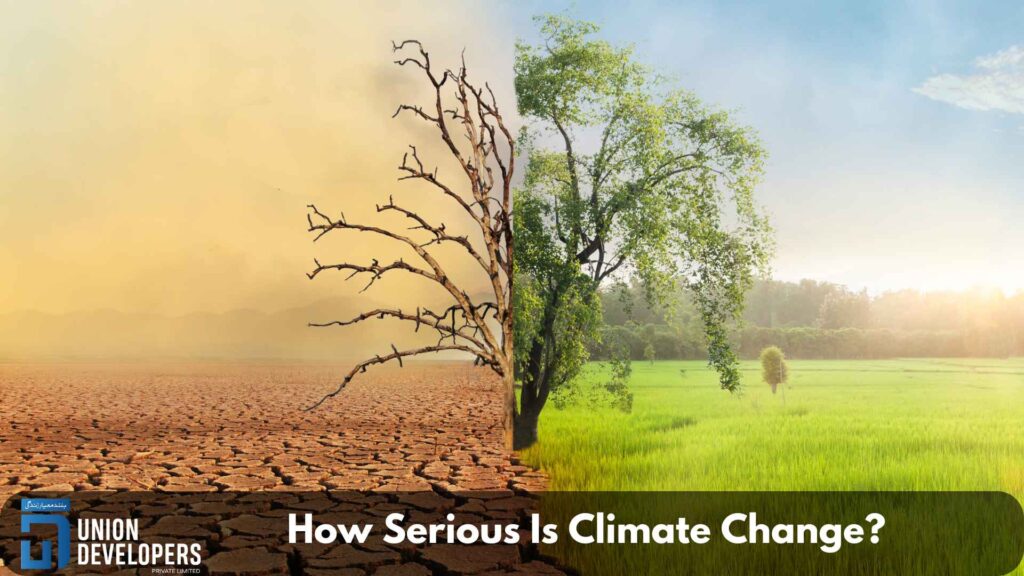
As a matter of fact, 2020 was a wake-up call for the entire world. Statistically, it was the hottest year on record since recordkeeping started in 1880. According to the NASA Global Institute for Space Studies and independent analyses by the National Oceanic and Atmospheric Administration and Climate Research, Earth is getting hotter than ever. This rise in temperature is causing severe weather events like storms, rising seas, heat waves, droughts, and wildfires, especially in Pakistan.
These devastating events cause damage to businesses, homes, and infrastructure, but also the loss of life and displacement of communities. Coastal communities are also facing new challenges as rising sea levels threaten flooding. The reality of climate change in Pakistan and globally cannot be ignored by the real estate sector.
Climate Change And Its Environmental Factors
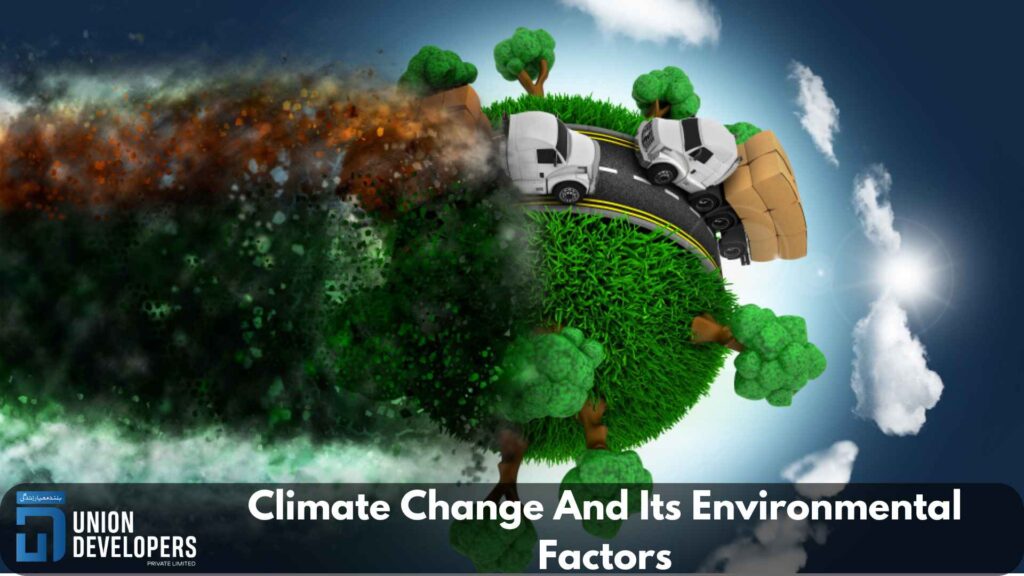
Climate change is the only risk to the real estate industry. As temperatures rise, new environmental factors come into play. Real estate owners have to be aware of possible environmental factors that affect their area or the property.
Air Pollution: A Concerning Threat To Real Estate
The rising air pollution poses a serious threat to both human health and the real estate sector. Air pollution is caused by transportation, industrial emissions, and energy production. People might think that air pollution would not impact real estate, which is not the case. The growing wellness and health sector is making tenants and buyers aware of the consequences of poor environmental conditions.
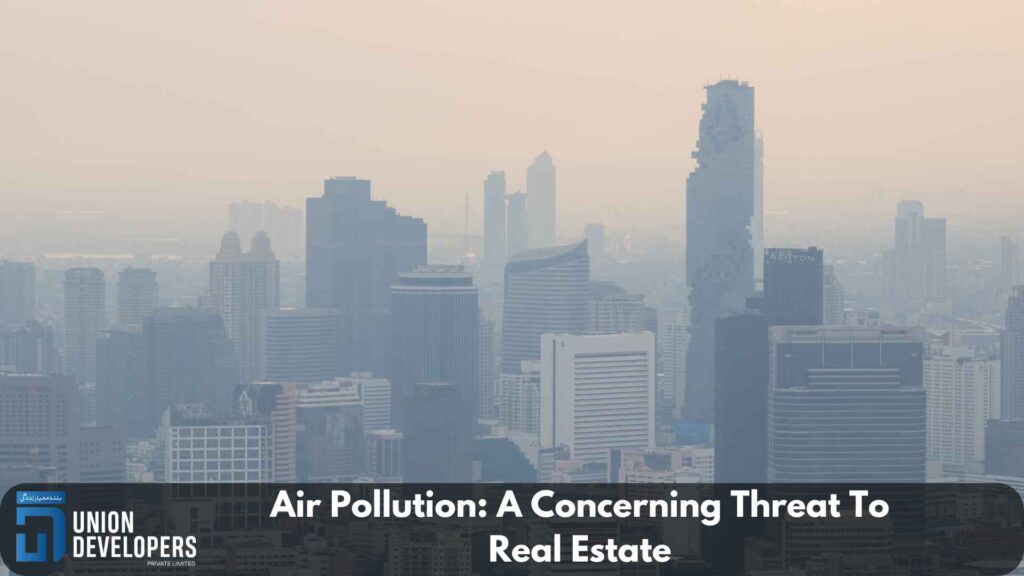
Areas with high levels of air pollution are facing serious consequences such as decreased marketability, lower property values, and a reduction in the quality of life for residents. When developers build new construction, they should take proactive measures to forecast how air pollution will impact the development.
Water Pollution: A Growing Threat To Real Estate
Water pollution is also a major environmental issue that poses a challenge to the real estate market. This can be caused by many sources, including agricultural activities, industrial runoff, and sewage discharge.
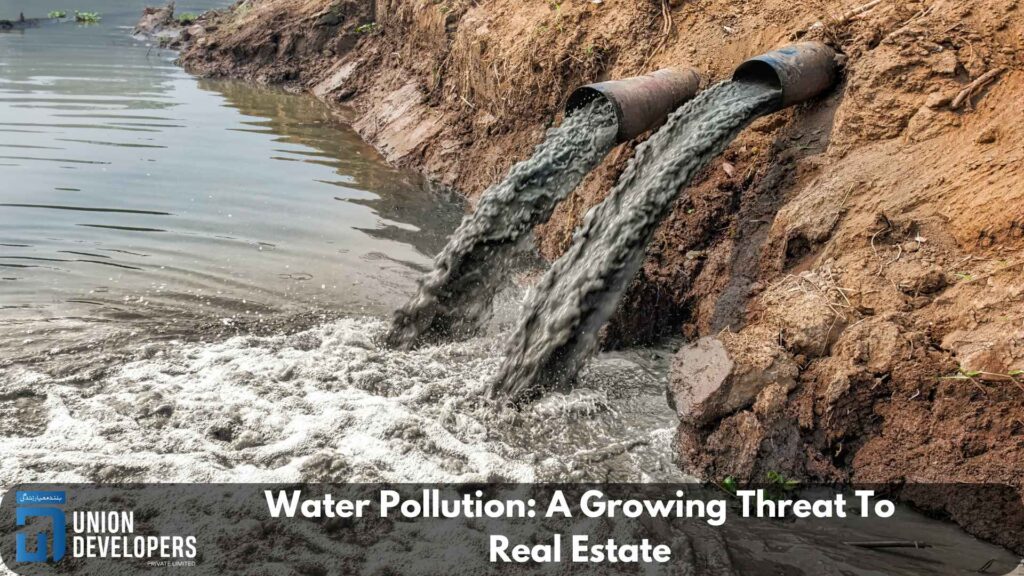
Water pollution can lower property values and impact the market value. In places where there is no clean water, people don’t like to invest and live there. Real estate developers in Pakistan and worldwide must ensure that new developments are built in areas with low levels of water pollution.
Land Pollution: A Growing Threat to Real Estate
Land pollution is another significant threat to the real estate sector, as it poses serious risks to both the environment and property values. Contaminated land caused by excessive plastic waste, industrial waste, or improper chemical disposal can make the land unsafe for development. The pollution not only harms the functional appeal of the land but also leads to legal liabilities, costly clean-up operations, and also causes health hazards for residents.
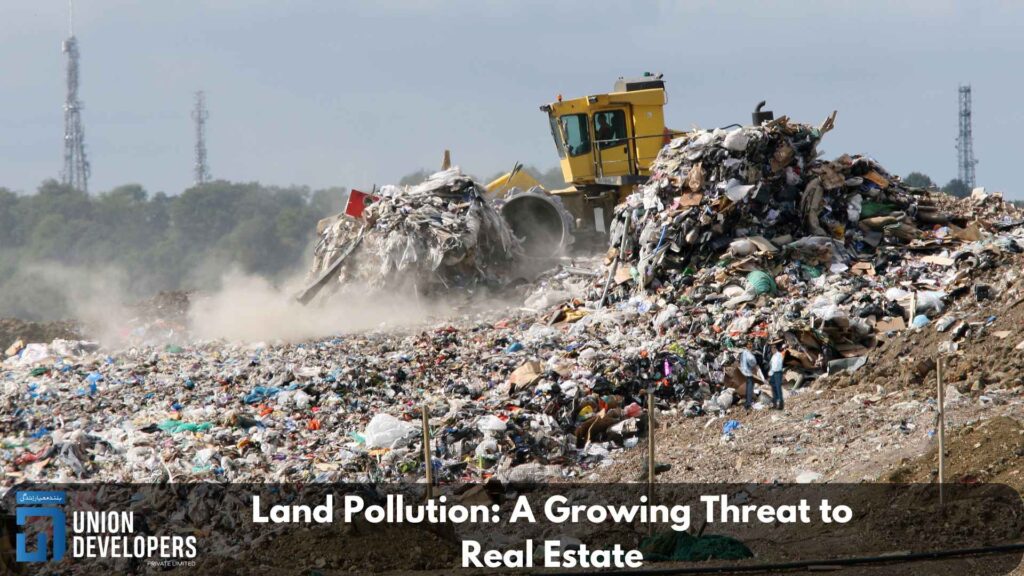
As urbanisation grows, addressing land pollution is now crucial for real estate developers. This will help the real estate industry to thrive more if the land pollution is controlled.
Rising Property Prices: Household Budget At Risk
There are many states where property values are skyrocketing. Due to inflation, many real estate businesses are being affected; many services, goods, construction materials, and labour costs are skyrocketing. This leads to high-priced properties and rental homes. Investors have a hard time investing in the real estate market. Due to the high demand for houses in Pakistan, forests, green belts, and swaps have encroached.
Buying Property Despite Climate Risk
While climate risk is dire, we still have to live with it. It is critical that we work collectively towards a safer and healthier future by lowering the carbon footprint. Still, we also continue purchasing homes and properties despite the risks. However, you can better prepare yourself when investing in a property.

If you are buying a property where there is a risk of climate change, talk to your real estate agent about extreme weather events like flooding or earthquakes. They can help you identify the areas with higher flood risks.
While we cannot eliminate climate change damages, we can be careful about where we invest and buy the property. If you are looking to invest in real estate property in Pakistan, then start your search with Union Developers.
Climate Change Progress
The global community has made a lot of progress in addressing climate change. This includes awareness campaigns, international agreements, and growing investments in renewable energy. If we look at the real estate sector, their focus is on using sustainable house materials to reduce carbon footprint. Pakistan is a highly vulnerable country to climate change and experiences extreme weather events, agriculture disruption, and water scarcity. Where Pakistan has taken initiatives to reduce the climate change consequences, still global attention and support are required.
Conclusion
Climate change is a crucial reality that cannot be ignored. It has an impact on the real estate sector in Pakistan. Extreme weather events such as air pollution, rising sea levels, and water pollution are threatening infrastructure and properties. The real estate industry must adapt to the challenges of climate change, which can affect the construction, development, and marketing value of a property. The real estate industry can help mitigate the risks and contribute to a greener state. However, the issue needs global attention and support for developing countries such as Pakistan.





